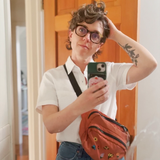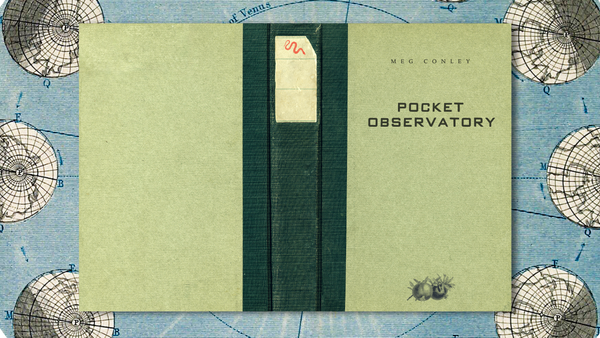November Observance
An exclusive essay, prompts and a gift!
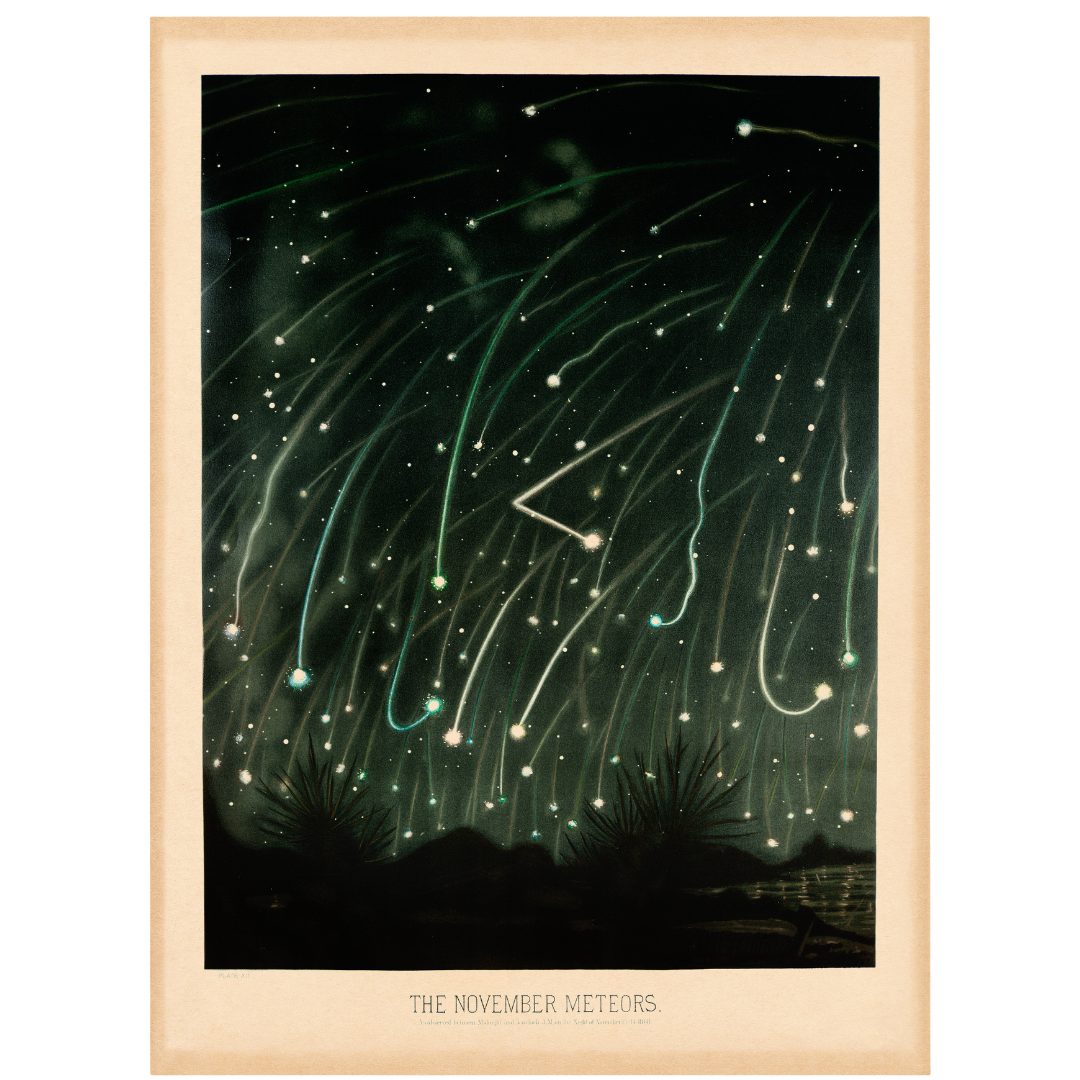
Dear Pocket Observer,
This observance is late. I am sorry. I put all my late October/early November hours into the series on JD Vance and the Pro-Slavery Right. After Trump won, I spent a week reworking my calendar for the next year. I feel my obligation to help write us through this, keenly. I want to be prepared. Your support helped me manage all of that! So this observance should not have been late! You were owed a Nov 1 letter!
Frankly, I’ve got too much work. Pocket Observatory needs an employee! I am trying to figure out how I can hire someone at a fair wage. I am in the middle of finding grants and understanding the risk/rewards of taking out a loan. (The latter seems to be all risk but I am open to it if it helps me do this work for us.)
What can be done in the meantime?
Brief Break: Please accept a little token of hospitality from me in the form of a new to us piece of art. Scroll to the end of the letter to get the link to download The November Meteors.
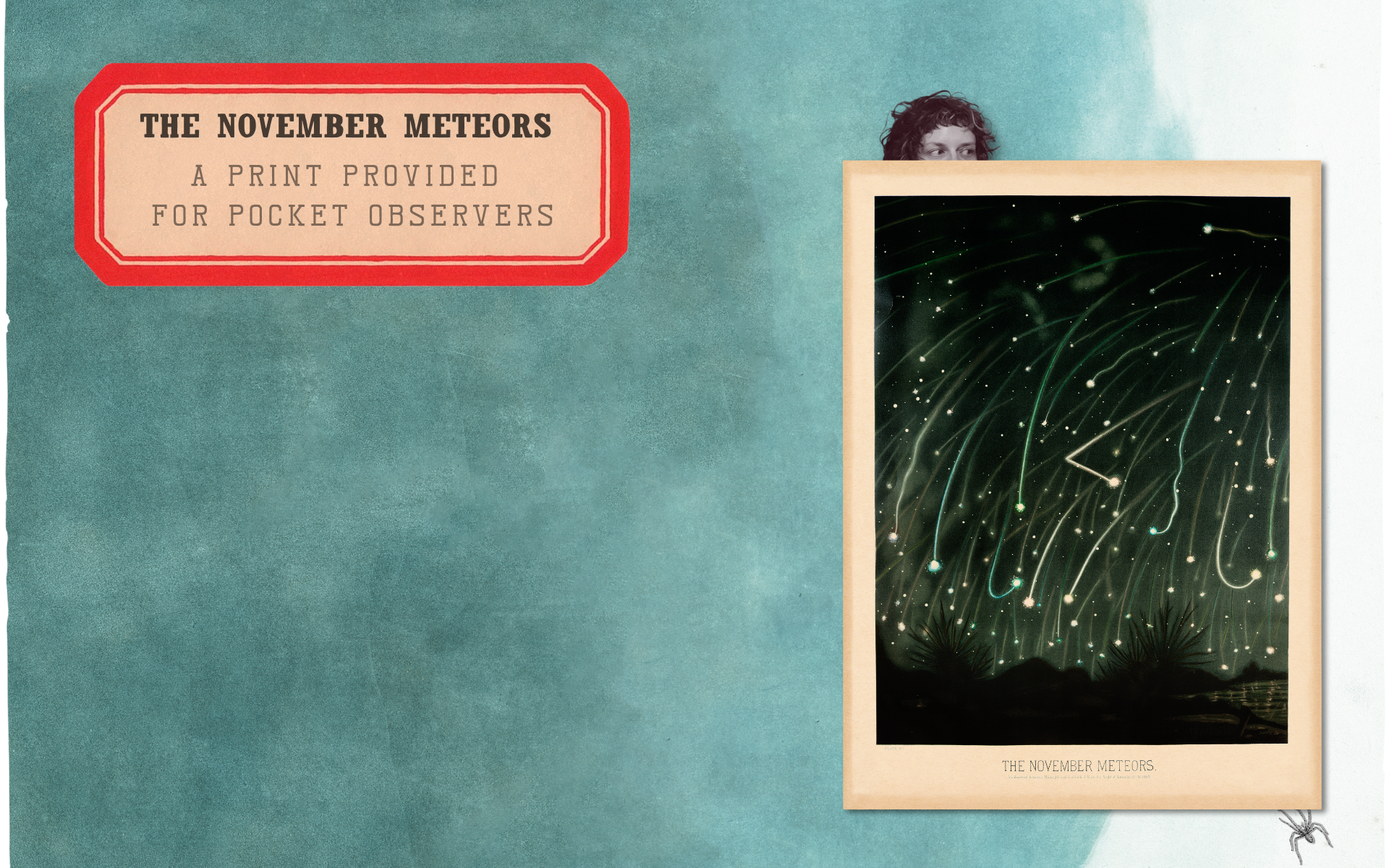
I am committed to prioritizing The Pocket Observation Project over the free newsletter - when I must. But I hope I don’t have to make the choice often. I’ll go into my reasoning in depth sometime soon on Pocket Observatory. But the TLDR is found in:
Part 1 - An exclusive essay and a question
Information is becoming an increasingly exploited resource. I feel compelled to do what I can to protect the bits and bytes in this little corner of existence. Information is a wiggly word. So let’s define it. I mean information as Michael Buckland discusses it in Information And Society, information as “related to human knowing and everyday experience.”
The traditional pathways we’ve used to share human knowing have been disrupted. At first, this seemed very good. Traditional pathways often begin behind large gates. Transmission technology like railways, telephone and the internet made it possible for people to access ways of knowing they’d have been denied in another time and place.
I am a very good example of how accessible knowledge can transform a person. I was raised to become a Mormon housewife. And I did become one. I had a lot of experience inside the home. The human knowing I possessed had to do with care work in a very restricted context.
And then, voices on Twitter helped me access other kinds of human knowing. They helped me find Plato and Planck, Baldwin and Beard, Gouges and Gödel. I’ve always written. But I became an independent researcher because of the internet. And now I can’t find the most basic answers to the most basic queries. Everything is AI-generated slop.
This has been coming for a long time.
The interests that would destroy the internet of knowledge were gathering before I knew there was an online. The US government complied at every turn. Deregulation, market fundamentalism, and vertical consolidation produced the oligarchs who would keep information from people. The impacts are already all around us.
Local journalism has been destroyed by private equity. Community spaces have been deconstructed and replaced with algorithmic platforms. If you’ve used Google or Twitter/X recently, you know that the disruptive technology is now undergoing controlled demolition. They’ve realized there isn’t enough profit in facilitating knowledge-sharing.
Now that the disrupters are disrupting themselves, we’ve got little to no cultural or technological for keeping and dispersing information. I won’t pretend I know how to fix it all from my kitchen table. I just know that we’ve got to preserve as much information as we can - for ourselves, for others. Preservation is not the same as hoarding. We’ve got to find a way to keep information without keeping it for ourselves. And dispersing is not the same as distribution. Dispersing allows different people to arrive at different ways of knowing at different times, in different ways.
The Pocket Observation Project is how I am going to keep without keeping, disperse without distributing. This project is limited, because I am limited. But I am doing what I can to expand myself and this space. When you share your observations here, you help disperse information.
Much more importantly, a monthly practice of observance helps you understand how to keep without keeping, in your own context. That’s a way of knowing you must find without me. But I am here to help you get there, in my own little way.
This morning I mapped out the additions I’ll be making to The Observatorium. Each bit of knowing is a coordinate. For a minute, I felt dizzy. How am I going to navigate this? But then I remembered that a course should include waypoints. And so after I send this to you, I will sit down and figure out what a waypoint looks like to me, and how I can build it in for myself and others I encounter.
This fits nicely with what I’ve been writing about in the newsletter: a system of mutual obligation that turns each household into a way station. I’ve never planned my editorial calendar around holidays. But it also seems fitting that many of us will sit around tables with family a week from Thursday for Thanksgiving. (We are not into the Thanksgiving of it all, but we do love a day of cooking and eating and communing.)
Over the next two weeks, I'd like us to think about transforming our households into way stations. We’ve all got a lot on our hearts and minds right now. So I am not going to ask too much of us. We will revisit this theme.
What does your ideal way station require?
A way station is a stopping place along a line of travel. The stop has a purpose - food, fuel, rest. Way-station is not a very old term - it comes to be alongside the railroad. But people have always planned journeys around places of refuge. Over the next year, I'll be writing about how our households can become way stations for others.
Right now, because why the hell not, I want you to think about what kind of way-station YOU need. Please outfit your ideal way station with objects, ideas, words, colors, workstations, sights, smells, tastes, and possibilities. Treat it like putting together a space in Animal Crossing - not bound by reality, but close enough to make it feel almost real.
Part 2 - A moment of reflection
It is very possible you feel welcome everywhere you go. Maybe home is a moveable feast for you. Or you might be like me - too unsettled to know a welcome when one wraps you up. Never at home even when you're at home. (I think it's very likely you are somewhere in between these two poles.)
Wherever you find yourself, please think of a time when you felt unconditionally welcomed in. Welcomed into a home, a community, a moment. Write the story of your welcoming in a sentence, a paragraph, or a page.
And then, consider what elements of the welcoming made you feel so wholly brought in. Do you find yourself extending these same elements of welcome to others? If not, how can you integrate these fundamentals into your daily life? Keep it simple.
Part 3 - An art print for your way station
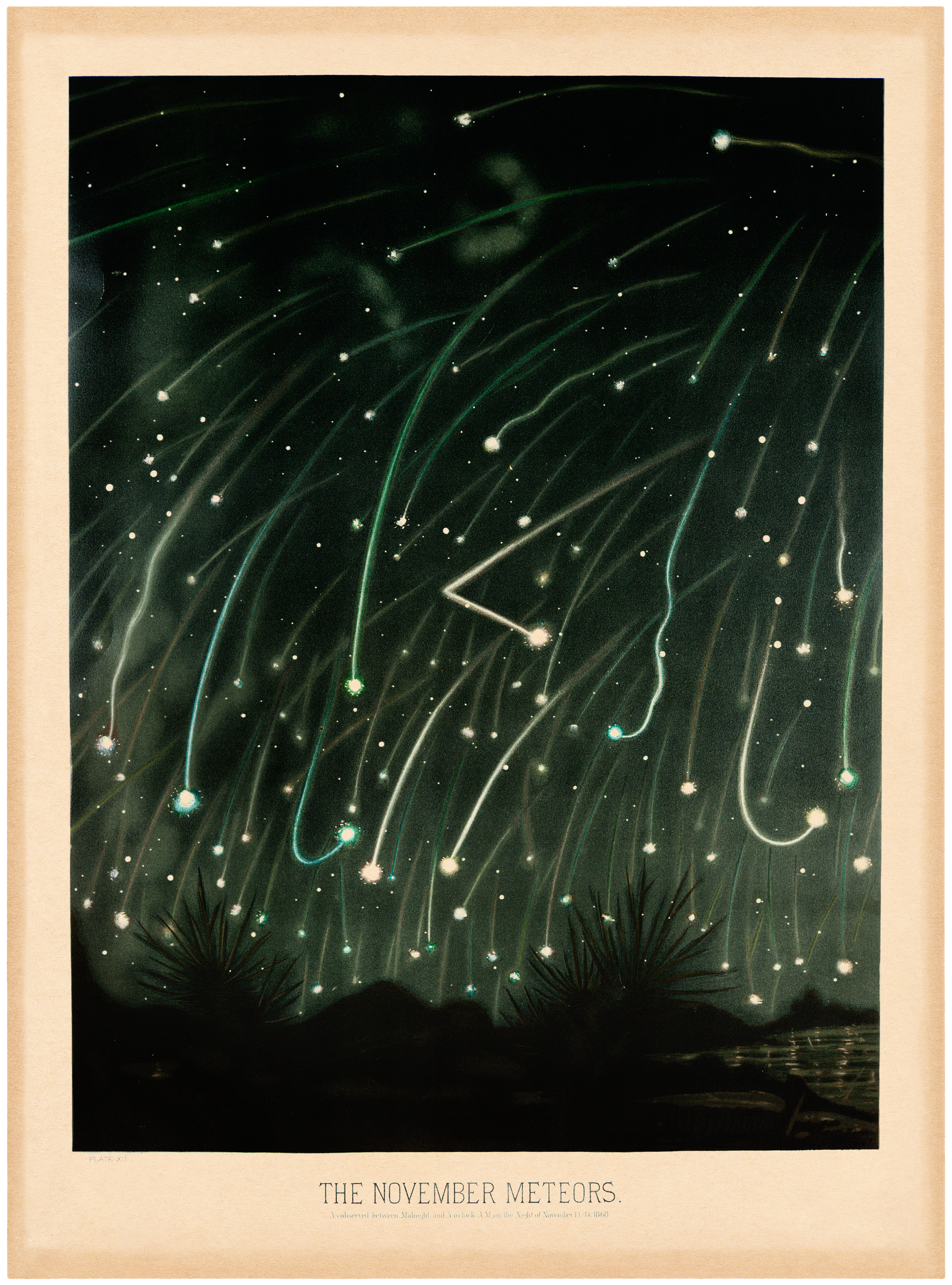
The November meteors: As observed between midnight and 5 o'clock A.M. on the night of November 13-14 1868.
This print is from a collection of astronomical drawings from E.L. Trouvelot. If you'd like to learn more about the artist behind this print, I recommend this page from the New York Public Library's 2001 exhibition on Trouvelot. He is kind of...a lot. If you read it, you'll see what I mean. Gosh, I do love his astronomical work THISMUCH though.
You can download a very high-resolution version of this image. Use the password welcome
I ran a recommended print size test on the image. According to the test, this file will produce a print of "excellent" quality up to 21 x 29 inches. It will have acceptable quality up to 43 x 57 inches. You can have it printed at a local or online print shop.
I will send my observations to you as I write them. I’ll also put them into The Observatorium, so you can see them interact with the other Objects.
Would you like to see how your observance connects to my observations and other Objects in the Observatoreum? You can submit your observance anonymously or with your name attached right here.

